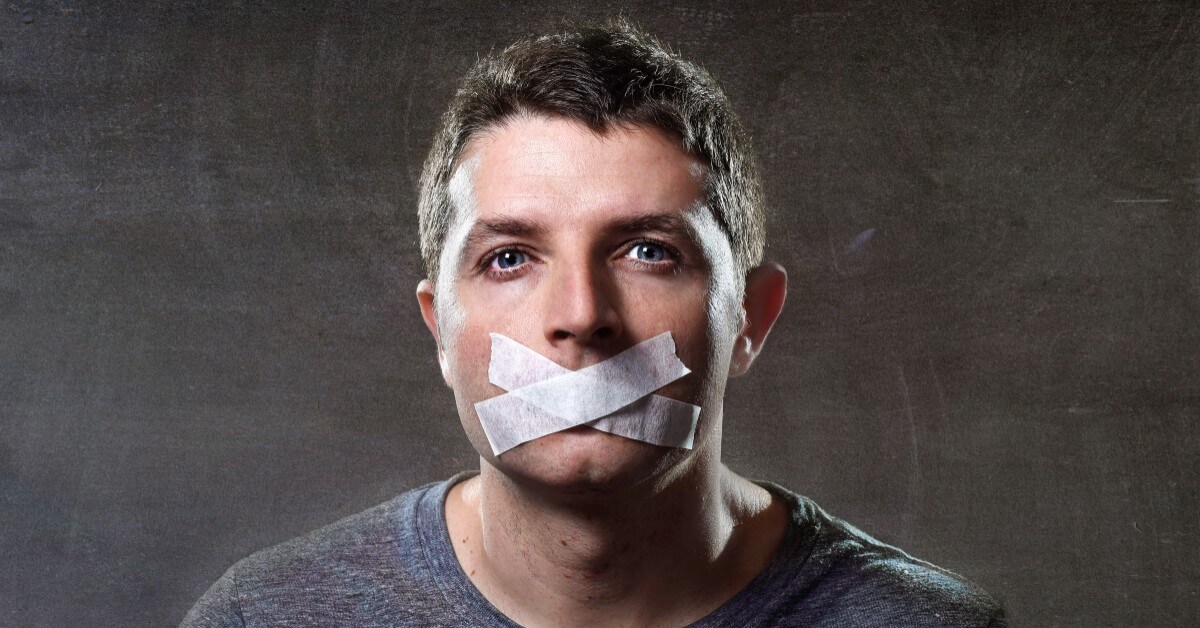Overview
A new trend on the social media platform TikTok has given rise to the practice of mouth taping to improve sleep. And like many other TikTok trends, it can, unfortunately, be a dangerous practice without some basic knowledge about the functions of breathing and sleep.
While mouth breathing is a common, often unconscious practice that humans pick up in childhood, it can negatively affect sleep and, therefore, may interfere with the benefits of a good night’s rest.
Is it possible to jump on this trend while ensuring health and safety, or is it best left alone? Let’s take a closer look.
What is Mouth Breathing?
Whether we’re dealing with a cold where the sinuses are congested, have a deviated septum, or are merely gasping for air from physical exertion, we have all done mouth breathing at some point.
Physiologically, mouth breathing will eventually lead to dry mouth as it’s an inferior breathing mechanism compared to our noses. Over time, this can also lead to gum disease and tooth misalignment. Plus, regular mouth breathing can lead to snoring, excessive thirst at night, and even bad breath or a sore throat in the morning.
In children, the practice can even lead to a narrowed face and a receding chin or jaw – a condition aptly named “mouth-breathing face.”[1]
But the dangers of mouth breathing are even more severe when done regularly and/or for extended periods. Using the mouth to breathe instead of the nose can cause sleep apnea, high blood pressure, high heart rate, and a drop in blood oxygen levels.
These unpleasant, immediate, and long-term effects have given rise to the relatively simple and inexpensive practice of mouth taping.
What is Mouth Taping?
Mouth taping is appropriately named. A piece of tape is placed over one’s mouth vertically while asleep to prevent the mouth from opening to ensure nostril breathing.
Even though this sounds like a practical solution, it must be kept in mind that except for some occasions, such as taping the mouth to manage air leaks from a CPAP mask in patients with sleep apnea,[2] mouth taping is not a common practice in sleep medicine.
So far, studies on whether the practice is beneficial to have appeared inconclusive.
However, some still believe mouth taping will improve sleep and even stop snoring. While this is technically possible, it may provide a false sense of relief when there could be an underlying cause of the snoring that is not being addressed.
For example, snoring is a significant warning sign for sleep apnea, and it is a good idea to have this ruled out by a physician first.
Other risks from mouth taping include:
- Allergic reaction or skin rash from the tape
- Increased anxiety
- Impaired ability to breathe in full, deep breaths
- Worsening of sleep apnea by impaired breathing
- Sleep disruptions
Conclusion
Unless there is an identified medical reason for it, mouth taping is not recommended due to insufficient scientific evidence to support the anecdotal benefits behind this viral TikTok trend.
There are many excellent ways to treat sleep conditions backed by solid research and far less risky. A far better way to address sleep quality is to practice good sleep hygiene. If you are concerned about snoring or sleep apnea, please consult your doctor or sleep specialist for guidance.
References:
- Basheer B, Hegde KS, Bhat SS, Umar D, Baroudi K. Influence of mouth breathing on the dentofacial growth of children: a cephalometric study. J Int Oral Health. 2014 Nov-Dec;6(6):50-5. PMID: 25628484; PMCID: PMC4295456.
- Lee YC, Lu CT, Cheng WN, Li HY. The Impact of Mouth-Taping in Mouth-Breathers with Mild Obstructive Sleep Apnea: A Preliminary Study. Healthcare (Basel). 2022 Sep 13;10(9):1755. doi: 10.3390/healthcare10091755. PMID: 36141367; PMCID: PMC9498537.






